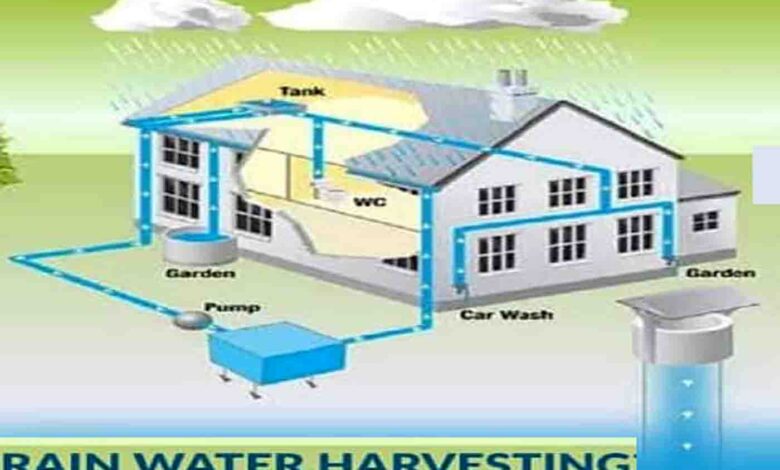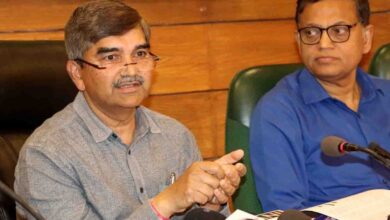Rainwater harvesting a low-cost, time-tested solution to water scarcity in U’khand

Thursday, 20 June 2024 | MANSI BHAMBRI | DEHRADUN
Experts emphasised the importance of rainwater harvesting throughout the State to prevent the current as well as the anticipated water scarcity condition in the future. Notably, in Uttarakhand, particularly in Dehradun, there is currently widespread water scarcity which increases in summers. Experts have identified factors such as tourist influx, wastage of RO water and excessive use of water in households contributing to the worsening water scarcity in the State.
Assistant professor at department of Geology department at Doon University, Rajeev Saran Ahluwalia noted that the water scarcity in the State, particularly in Doon, has resulted from a disparity between water demand and supply. “The overtourism has led to an increased demand for water, exacerbating the imbalance between demand and supply and ultimately resulting in water scarcity. Additionally, the city’s water resources have been depleted, including groundwater levels,” he said.
He also pointed out that there is a lack of awareness among the people regarding the importance of water, leading to wastage in everyday household activities. “To prevent future water scarcity, we need to halt construction activities in cities, particularly during the summer season when water wastage tends to increase. Apart from this, individuals ought to be encouraged to reduce water wastage in household activities. For instance, instead of cleaning vehicles with a water hose, consider washing them with water from a bucket using the minimum amount necessary. Similarly, watering plants should be done deeply rather than just on the surface to reduce the need for frequent watering,” he said.
Ahluwalia also stressed the importance of the State government implementing a policy requiring residents across the State to have a mandatory rainwater harvesting system on their properties.
Asked to speak on the same matter, the secretary of the Society of Pollution and Environmental Conservation Scientists (SPECS) Brij Mohan Sharma said that the population in the State, particularly in Dehradun, has increased by an average of 30 per cent over the years.
He also noted a rise in tourist influx.
“This growth has put pressure on the state’s resources, impacting rivers and leading to water scarcity. The surge in number of tourists has escalated water demand in establishments like hotels and swimming pools,” he said.
Sharma also underscored the importance of identifying key stakeholders to educate about water scarcity.
He advocated for rainwater harvesting as a crucial measure to mitigate this issue. “Those running the government, including ministers and bureaucrats, should set an example by implementing rainwater harvesting systems at their own places. Additionally, he suggested that the State,” he said and added that the government should prioritise grass-lined footpaths over cemented ones for better water conservation within the city.






